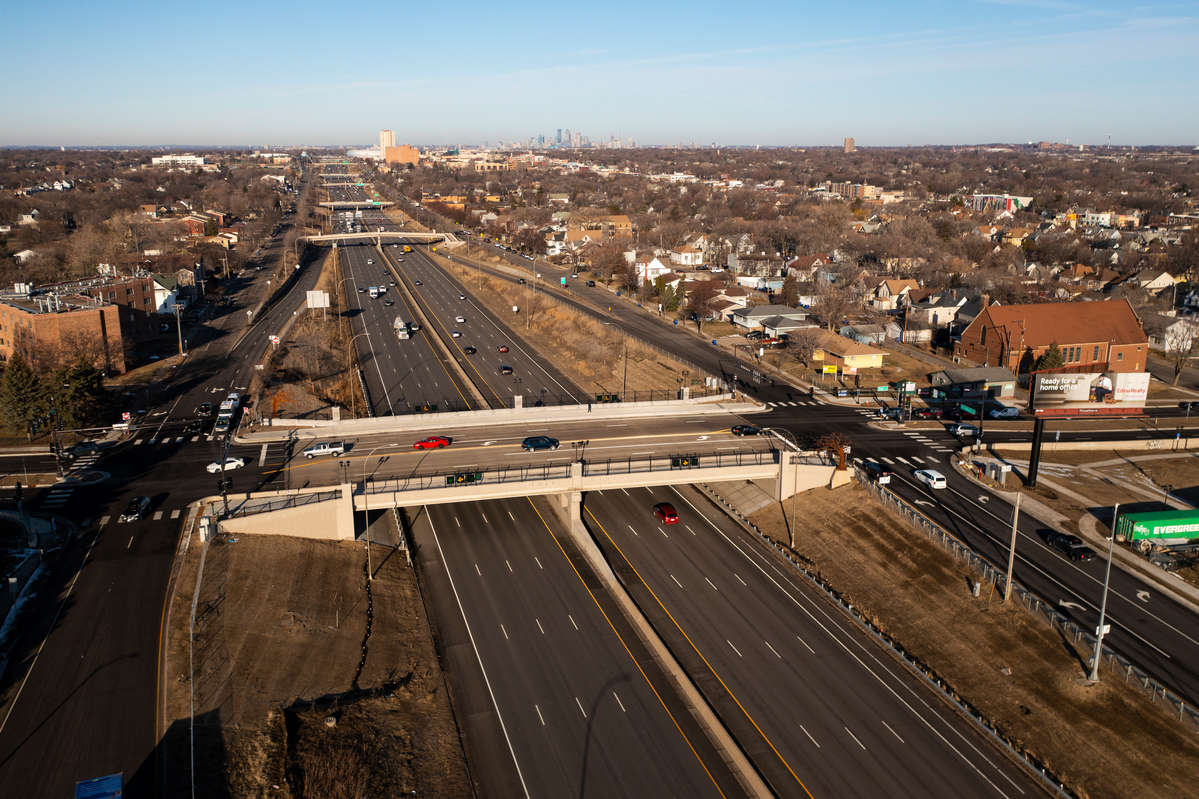As a Russian studies major and women, gender, and sexuality studies minor, senior Samantha Nordmark had never taken an engineering class. However, when she heard about an honors seminar focusing on the intersection of race and transportation, her curiosity was piqued and she signed up.
“It is important to look at how, as America, our racist policies continue to affect racial minorities to this day,” said Nordmark, a member of ROTC who will soon be graduating as a commissioned officer in the Air Force.
The honors seminar is a collaboration from the School of Education’s Dr. Aura Wharton-Beck and the School of Engineering’s Dr. Rita Lederle. It focuses on taking an interdisciplinary approach to analyze the implementation of racist policies that have impacted communities of color in the United States from the lens of two different fields of study.
In discussing the intersection of race and transportation, the class studied St. Paul’s Rondo neighborhood, a majority Black community, largely demolished by the construction of Interstate 94 between 1956-68.
Lederle said it’s important to look at what happened to the Rondo community, and similar situations, through multiple perspectives.
“From one standpoint it's really easy to vilify the engineers,” she said. “There was definitely racism that factored into some decisions, but that doesn’t mean all engineers were or are racist. For the longest time engineers were not trained to think about people at all. You could just be told to design a highway bridge and you would have zero information about the community it was in. We're also showing students how engineering actually works because some decisions are motivated by engineering concerns. We want to explore the nuance in case studies. There are multiple stories on all sides of the issue.”
Wharton-Beck echoed this sentiment in talking about the relevance the course has to students' lives today.
“For the students who witnessed the murder of George Floyd, now they’ve had this awakening,” she said. “This is an excellent time for students to examine some of the institutionalized practices that have impacted some communities and whole sectors of the United States. We are using the arts as a way of telling a story. To do so we discussed Lorraine Hansberry's play 'A Raisin in the Sun' and viewed archival photos of early tenement housing of early immigrants. Dr. Lederle has her engineering lens, so I'm bringing the arts and literature into the conversation as well.”
Patrick Jackson, a senior and mechanical engineering major, explained his interest in the class following the recent increase in dialogue surrounding race in America.
“I, like many, have been questioning a lot about our societal and political structure as they relate to race,” he said. “As the events of the last year unfolded, I became aware of how uneducated I was about racial injustices in our country. This class seemed like a great way to learn about this history with the ultimate goal of creating solutions, and it hasn’t disappointed.”
When it comes to the intersection of race and transportation, Lederle said there are so many storytelling narratives married with technical aspects that this needed to be an interdisciplinary class.
“There is so much complexity in what we do, and engineers need to consider these stories while nontechnical people need to look at the technical side as well, and understand that that's another story that factors in,” she said.
Students in the seminar also had the opportunity to present projects at the Westminster Social Justice Forum, a prerecorded event that airs every Sunday morning from September through May. The forum’s theme this year is “Wade in the Water, Becoming Anti-Racist." It gave students the opportunity to share what they had learned about the intersection of race and transportation throughout the course.
As the end of the semester nears, Nordmark said the honors seminar has left her a new perspective.
“After taking this class I'm going to be able to look at neighborhoods through a different lens,” she said. “I will look at a neighborhood and ask what is the population? What is the demographic? What is the history and how did it become the way it is? What is still oppressing certain groups of people and how can we combat that? The class stimulates so much agency and thinking outside of your own perspective. For me being a white female, I have a lot of privilege but I'm going to use my privilege and my agency to make something happen in the government and be an ally.”







